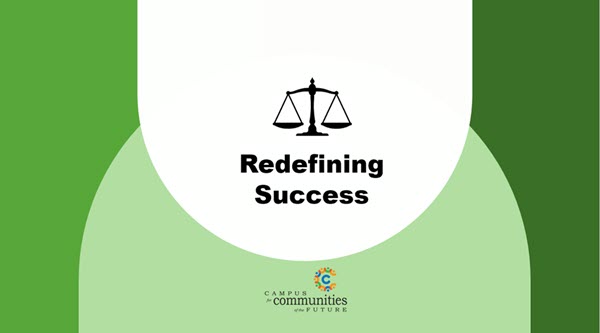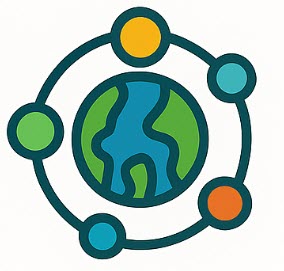Redefining Success: Balancing Prosperity, Well-Being, and Purpose

A recent conversation with a charismatic, intelligent young man reinforced the challenges of a global economy that too often prioritizes, measures, and rewards generating profit at the expense of social and environmental well-being.
He was a hardworking and driven guy who wore his confidence and competitive nature proudly. And, to his credit, he has had significant financial success.
But our talk also highlighted for me something else: many hardworking, driven people aren’t seeing the same financial rewards because they are balancing profit with social and environmental well-being.
![]()
As we spoke, I noticed our thinking styles were different. He’s more analytical and fact-based—what some call “left-brained.” I’m more intuitive and holistic—more “right-brained.” He’s firmly rooted in our current, consumer-focused economy, which aims to maximize consumption.
Like a growing number of others, I’m working hard to ensure a regenerative economy—a systems approach that cares for people and the planet, that is finally starting to gain traction.
My work centres on social, environmental, and economic well-being. These don’t appear to be priorities for him; he wasn’t familiar with the United Nations’ 17 Sustainable Development Goals. These SDGs, addressing the world’s most pressing issues, have, for many, become a valuable framework for systems thinking on many levels.

For him, success is measured in dollars. For me, and those committed to a regenerative economy, success is also about social, environmental, and cultural well-being, both locally and globally.
Those of us advocating for a regenerative or well-being economy make decisions differently. We look at the big picture, think long-term, and involve other stakeholders. The dominant economic system, by contrast, is profit-driven, directed by senior leadership, and focused on short-term gains.
Our current global economy is still based on a “take-make-use-dispose” model—a linear approach that started with the Industrial Revolution. This model drives most of today’s production, consumption, and waste, often at the expense of the environment and society.
I’m grateful to be among many who have been inspired by Mark Anielski, a Canadian well-being economist who pioneered alternatives to the GDP (Gross Domestic Product). Like the late Herman Daly, Anielski wanted to measure what truly matters to our quality of life—not just financial metrics, but well-being and happiness.
Although Anielski’s work began in the 1990s, I was lucky to meet him in 2007 while working in Alberta. His ideas have helped shift the focus from the GDP to more meaningful measures of success, like the Well-being Index from British Columbia that influenced Bhutan’s Gross National Happiness Framework, and the Canadian Well-being Index. As GDP only measures economic output, Anielski is committed to measuring a broader view of wealth and a good life in terms of mind, body, spirit, and the natural environment. In doing so, his models have influenced both Canadian and global efforts to redefine success.

More recently, many are learning from John Fullerton, an American economist and thought leader. He advocates for Regenerative Economics, which he introduced in his 2015 paper, Regenerative Capitalism: How Universal Patterns and Principles Will Shape the New Economy.
Similar to Anielski, Fullerton’s work applies the principles of healthy living systems to economics and finance, pushing for models that are sustainable, just, and aligned with nature. Regenerative economics, inspired by nature and traditional Indigenous practices, seeks to restore and renew the health of our natural, social, and economic systems. It’s about creating systems that are resilient and interconnected.
While guided by similar principles to those of Anielski and Fullerton, my own work with others over the past 20+ years has focused more on the transformative change, systems collaboration, and how-tos that are essential for community well-being. We describe it as being locally-driven innovation that is global by design—more of a community change framework.
For us, that has meant not only focusing on using the holistic approaches advocated by both Anielski and Fullerton that will ensure economic, social, and environmental balance and well-being. It has also meant paying attention to what Nora Bateson defines as ‘warm data’. Warm data is information that shows how things are connected and how they affect each other, rather than just looking at facts in isolation. It helps us understand the living, changing relationships within a complex system like a community.
The key takeaway here is that if we want people and the planet to prosper together, success must go beyond a singular focus on profits. For example, regenerative practices like those in agriculture, i.e. farming methods aimed at restoring soil health, boosting biodiversity, sequestering carbon, and improving the resilience of agricultural systems, are growing but are still considered niche because our current system doesn’t fully reward their benefits.
It’s a complex, messy situation, but there is hope. Moving forward, the health of our communities and ecosystems depends on embracing collaboration, fairness, and sustainability as the foundations for a future that is truly reflective of well-being.
Posted on 07-02-25
Next entry: My Not-So-Economist Book Club: Mark Carney Edition
Previous entry: Where’s the Moonshot???

 Brenda Herchmer is the owner of Grassroots Enterprises, a community development consulting company.
Brenda Herchmer is the owner of Grassroots Enterprises, a community development consulting company.